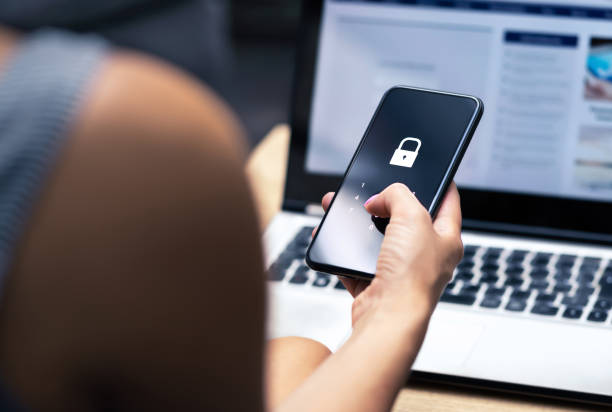Introduction
In today’s rapidly growing world, mobile hotspots have become a lifeline for staying connected on the go. They are incredibly handy. They let you connect to the internet on the go, whether you are traveling, working remotely, or just need a quick Wi-Fi connection outside your home. But with great convenience comes great responsibility. If your mobile hotspot is not secure, it can be a goldmine for hackers and other malicious users looking to steal your data. That’s why it’s important to ensure the security of your mobile hotspot. For your easiness, in this guide, we will walk you through simple, practical steps to keep your hotspot safe and your information protected. Let us dive in!
What is a Mobile Hotspot?
Well, a mobile hotspot is a feature on your smartphone or a portable device that allows you to share your internet connection with other devices. Think of it like turning your phone into a mini Wi-Fi router. When you activate your mobile hotspot, it creates a Wi-Fi network that other devices, like laptops or tablets, can connect to. This way, you can use your phone’s data plan to get online with multiple devices, even when there is no regular Wi-Fi around. It’s super convenient for staying connected on the go!
How Mobile Hotspots Work
Mobile hotspots are quite simple to understand. Here is how they work:
- Internet Connection: Your smartphone or dedicated hotspot device uses its data connection to access the internet. This is the same data plan you use for browsing the web or streaming videos on your phone.
- Wi-Fi Signal: When you turn on the mobile hotspot feature, your device creates a Wi-Fi signal, just like your home Wi-Fi router.
- Connecting Devices: Other devices, like laptops, tablets, or other smartphones, can detect this Wi-Fi signal. They can connect to it by selecting the hotspot name (SSID) and entering the password you set up.
- Sharing Data: Once connected, these devices can use your phone’s data to browse the internet, check emails, stream videos, and more.
Risks Associated with Mobile Hotspots
Using a mobile hotspot is super convenient, but it also comes with some security risks. Here are the main threats you should be aware of:
Unauthorized Access
If your mobile hotspot isn’t secured with a strong password, anyone who is nearby can connect to it. This means strangers could use your data, which could slow down your connection or lead to extra charges on your data plan.
Data Interception
When data travels between your device and the internet, hackers can try to block it. This means they could potentially see your emails, passwords, and other sensitive information. It’s like someone eavesdropping on your private conversation.
Malware and Viruses
If someone with bad intentions connects to your hotspot, they might try to send harmful software (malware) to your device. This can lead to your device getting infected with viruses, which can steal your information or damage your device.
Public Hotspot Risks
Using your mobile hotspot in public places can be risky because there are more chances for hackers to be nearby. Moreover, public places are often targeted by cybercriminals looking for easy victims.

Tips for Securing Your Mobile Hotspot
We all know that keeping your mobile hotspot secure is important to protect your personal information and data. Here are some simple tips to help you do that:
Enable Password Protection
Remember that you always have to set a password for your mobile hotspot. This ensures that only people with the password can connect to your hotspot.
Use a Strong Password
Also, create a strong password that is hard to guess. Use a mix of letters (both uppercase and lowercase), numbers, and symbols. Avoid using easy-to-guess passwords like “123456” or “password.”
Disable Broadcasting SSID
Your hotspot’s name (SSID) can be hidden so that it doesn’t show up in the list of available networks. This makes it harder for strangers to find and try to connect to your hotspot.
Enable Encryption
Turn on encryption for your hotspot. Encryption scrambles the data sent over your network, making it harder for hackers to read your information. WPA2 (Wi-Fi Protected Access 2) is a good choice for strong security.
Regularly Update Firmware
Keep your device’s software (firmware) updated. Manufacturers release updates that fix security holes and improve protection. So keep on checking for updates regularly and install them when available.
Monitor Connected Devices
Regularly look over which devices are connected to your hotspot. If you see any devices you don’t recognize, disconnect them and change your password immediately.
Use a VPN
Furthermore, a Virtual Private Network (VPN) adds an extra layer of security by encrypting your internet connection. This makes it even harder for anyone to intercept your data.
Change Default Settings
Many mobile hotspots come with default settings that are easy to guess. Always change the default network name (SSID) and password to something unique.
Disable Automatic Connectivity
Some devices automatically connect to saved networks. Turn off this feature to prevent your device from connecting to potentially unsafe networks without your knowledge.
Turn Off the Hotspot When Not in Use
If you’re not actively using your mobile hotspot, turn it off. This minimizes the risk of someone connecting to it without your permission.
Use Two-Factor Authentication (2FA)
If your device supports it, use two-factor authentication. This adds an extra step to the login process, making it harder for unauthorized users to gain access.
Educate Yourself About Security Threats
Stay informed about the latest security threats and how to protect against them. The more you know, the better prepared you will be to secure your mobile hotspot.
Be Cautious with Public Charging Stations
Avoid using public charging stations, also known as “juice jacking” stations. These can be modified to steal data or install malware on your device. So try to use your own charger and cable instead of using charging stations.
Be Wary of Free Wi-Fi Offers
Sometimes, free Wi-Fi offers can be traps set by hackers. Stick to your secured mobile hotspot instead of connecting to unfamiliar free Wi-Fi networks.

| Call 866-861-4084 for Internet Deals |
Monitoring Your Hotspot
Keeping an eye on your mobile hotspot helps you ensure that only the people you trust are using it. Here’s how you can monitor your hotspot easily:
Regularly Check Connected Devices
Frequently check which devices are connected to your mobile hotspot. You can do this through your phone or hotspot device settings. If you see any devices you don’t recognize, disconnect them right away and change your password.
Monitor Data Usage
Keep track of how much data your hotspot is using. Most devices show data usage details in the settings. If you notice sudden spikes or unusually high data use, it might mean someone unauthorized is using your hotspot.
Set Data Limits
Some devices let you set data limits for your hotspot. Once the limit is reached, the hotspot will stop providing internet. This can help you control how much data is used and avoid overage charges.
Use Notifications
Enable notifications for when new devices connect to your hotspot. This way, you’ll get an alert whenever a new device tries to connect, helping you quickly spot any unauthorized access.
Log Out After Use
Make it a habit to turn off your hotspot when you’re not using it. This prevents anyone from connecting to it without your knowledge when you’re not around.
Regularly Update Passwords
Change your hotspot password regularly to maintain security. Even if your password hasn’t been compromised, changing it periodically is a good practice to keep your network safe.
Conclusion
That’s a wrap. Keeping your mobile hotspot secure is very important to protect your personal information and data. By following the tips in this guide, you can make sure your hotspot is safe from hackers and other threats. Always use a strong password, keep your device updated, and be careful when using your hotspot in public places. Regularly check which devices are connected and use extra security measures like a VPN if needed. By staying aware and taking these simple steps, you can enjoy the convenience of your mobile hotspot without worrying about security risks.
FAQs (Frequently Asked Questions)
How can I tell if someone is accessing my mobile hotspot without permission?
If you suspect unauthorized access to your hotspot, check the list of connected devices in your hotspot settings. If you see any unfamiliar devices, disconnect them immediately and change your hotspot password.
Is it safe to use a mobile hotspot in public places?
While convenient, using a mobile hotspot in public places can pose security risks due to the potential for unauthorized access and data interception. Take precautions such as using a VPN and avoiding sensitive activities on public networks.
What is the best encryption protocol for securing my mobile hotspot?
The best encryption protocol for securing your mobile hotspot is WPA2 (Wi-Fi Protected Access 2). It offers strong security and is widely supported by devices and routers.
Can I use a VPN with my mobile hotspot for added security?
Yes, you can use a VPN with your mobile hotspot for added security. A VPN encrypts all data transmitted between your device and the internet, protecting it from prying eyes and potential attackers.
Are there any mobile hotspot devices that come with built-in security features?
Yes, some mobile hotspot devices come with built-in security features such as encryption, firewall protection, and automatic firmware updates. When choosing a hotspot device, look for one that offers robust security features to help protect your data.

Meet Jennifer Harper, a wordsmith extraordinaire who has been shaping the digital landscape with her creative prowess for the past two years. Not just a content writer; she is a storyteller who brings the content to life. Her passion for internet trends, memes, and the ever-evolving world of entertainment is evident in every piece she creates. Jennifer doesn’t just follow trends; she sets them.